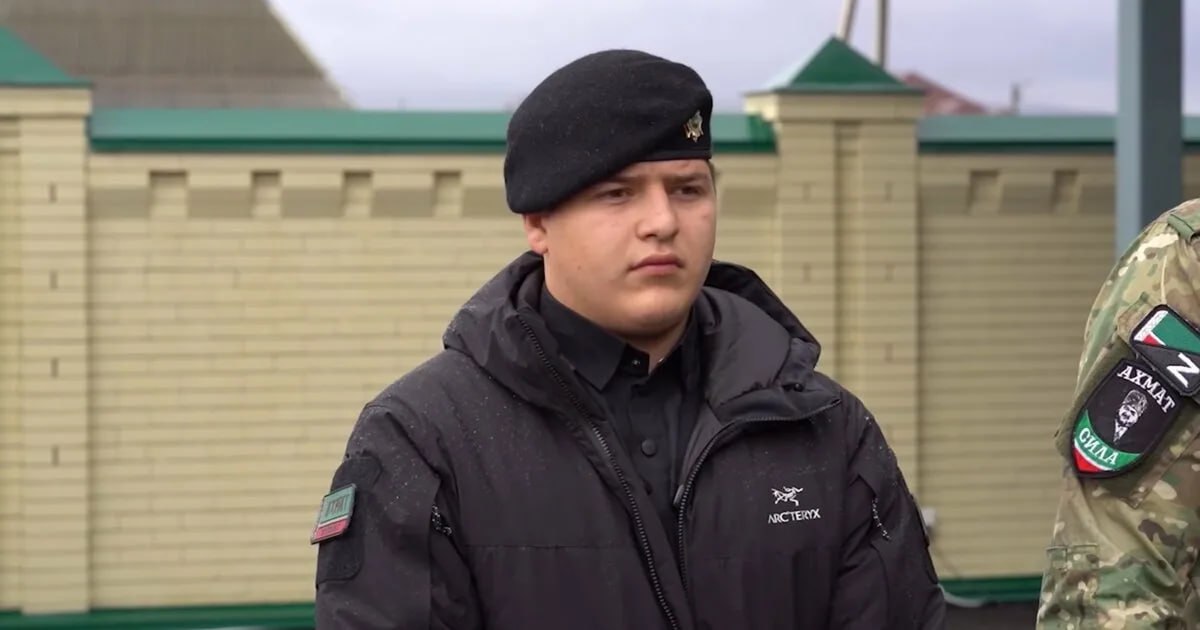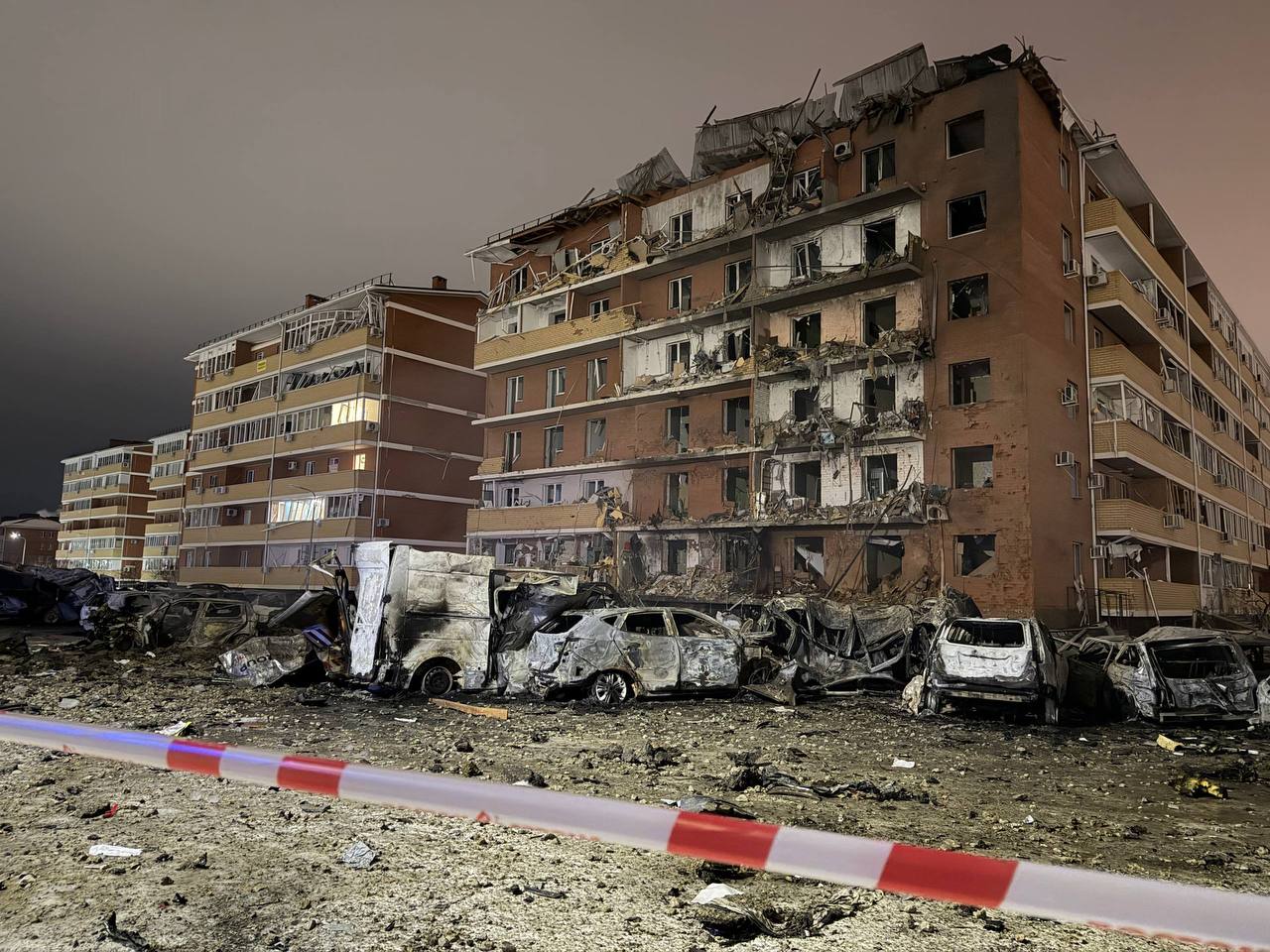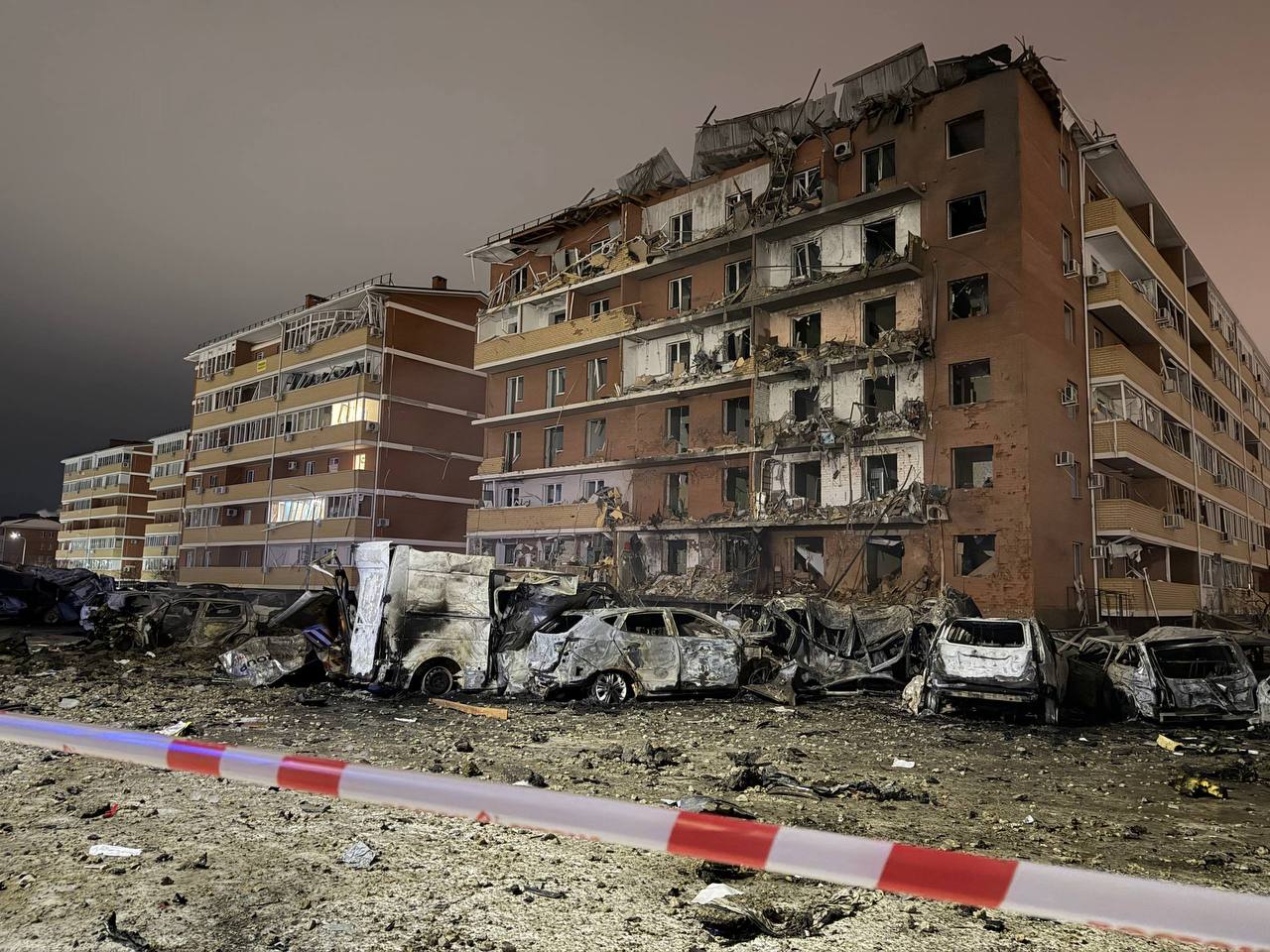The health of Adam Kadyrov, the son of Chechen leader Adam Kadyrov, who was injured in a traffic accident in Grozny, is improving, according to the Agency, citing sources close to the Russian presidential administration and the Chechen authorities.

November 7, 2001
***
At dawn, the “cleansing” of the village began. Serzhen-Yurt. The operation was attended by employees of the commandant's office, the VOVD, and military personnel of the 70th motorized rifle regiment of the 42nd division of the RF Ministry of Defense, stationed on the outskirts of the city of Shali. The military arrived in armored personnel carriers and Ural and UAZ vehicles and tightly surrounded the settlement. They were commanded by the commandant of the Shalinsky district, Major General Gennady Nakhaev.
The main result of the operation was the abduction of residents of the village of Duba-Yurt (registered in this village at the address: Nuradilov St., 57) Eset Abdullaevna Yakhyaeva, born in 1956, and her niece Milana Khasanovna Betelgerieva, born in 1980. In Serzhen-Yurt they visited Abdurakhman and Zalpa Ibluevs and helped the owners decorate their new house. Besides them there were also workers - five girls. Together with Yakhyaeva and Betelgerieva, they spent the night in neighboring rooms of the house on Zarechnaya Street. It was to them that between five and six o'clock in the morning the military came first. Illuminating the sleeping people with flashlights, they asked where the men were. Having learned that there were only women in the house, they took the gold chain and earrings from the windowsill and left, swearing. The girls rushed into the next room and discovered that Eset Yahyaeva and Milana Betelgerieva had disappeared. Petimat Iblueva, the daughter of the owners of the house, reported the incident to her parents.
Abdurakhman Ibluev, deputy head of the village administration, and several local residents managed to get to the outskirts of the village, where the military was preparing to withdraw from the village. Fellow villagers found Gennady Nakhaev and told him about what had happened. They emphasized that even the documents of the abducted were not checked: their passports were left at home.
The military commandant of the area promised to sort it out and went to the beginning of the column that was forming. After talking with several military men there, he returned and said that we had to wait until the end of the operation. After some time, the equipment began to move, and two armored personnel carriers separated from the main column and headed to the location of the 70th regiment. Abdurakhman Ibluyev and the people accompanying him again reminded the general about the kidnapped residents of Duba-Yurt, but he replied that he was waiting for relatives in the afternoon in Shali, promising to sort everything out there.
Already at the commandant’s office, Gennady Nakhaev stated that his employees did not detain women. He again promised to take measures to find them. Relatives of Eset Yakhyaeva and Milana Betelgerieva are confident that they were abducted by servicemen of the 70th regiment. The searches they themselves organized did not lead to positive results.
***
At 10.30 the village of Tsotsin-Yurt was blocked. A column of approximately 470 vehicles and armored vehicles approached him from the direction of neighboring Mesker-Yurt. Around noon, the Russian military began a “cleansing operation” that lasted five days until November 12.
At this time, there were up to 70 people in the village who had come to attend the funeral of a local mullah who had died the day before. For two days, neither they nor the local residents were allowed out of Tsotsin-Yurt. They didn’t even let out a pregnant woman who needed urgent qualified medical care. And only on November 9, with the onset of darkness, children and women began to be allowed through from Kurchaloy.
During the “cleansing” operation, the military detained 30 people on one street alone. From Zarechnaya Street, for example, they took away all the men. The detainees were taken to the mill, where the Internal Troops brigade of the Ministry of Internal Affairs of the Russian Federation was located, and interrogated for three days. They beat and tortured. Most of the detainees were later released, some for ransom.
After the operation was completed, 23 people were taken away. The names of 17 of them are known to the Human Rights Center “Memorial”:
1-3. Borz-Ali (Chaborz) Mairbekovich Khadzhimuradov, born in 1978, Borz-Hadzhi (Bokhag) Mairbekovich Khadzhimuradov, born in 1980, and Kazbek Mairbekovich Khadzhimuradov, born in 1981. All three are siblings and lived on Sovetskaya Street. They were detained on November 7 by armed men in camouflage uniforms and masks who arrived in two armored personnel carriers. They did not show any documents. Witnesses to the arrest were members of the Khadzhimuradov family. The brothers were kept in the building of the military commandant's office in the regional center of Kurchaloy. They were beaten and tortured there. There were witnesses to this. Released, possibly after paying a ransom.
4-5. Aslambek Kidievich Sultanov, born in 1969, and his brother Salambek Kidievich Sultanov, born in 1971. (Sovetskaya str., 85 and 87). They were detained on November 7 by the military, who arrived in two armored personnel carriers and two Ural vehicles. The numbers on the equipment were covered up. The brothers were taken out into the yard, stood against the wall and told that they would shoot them. At this time, residential premises were robbed under the guise of a search. The military took away valuables and forced Zainap, the wife of Salambek Sultanov, to pour grain out of bags onto the ground, a total of 1800 kg. Besides her, other members of their family also witnessed the arrest. Without telling anyone, the military took the brothers with them. Where, at first, it was not clear. Then it turned out that they were being held in the military commandant’s office in Kurchaloi. Both were tortured. A week later, on November 14, they were redeemed with money and machine guns purchased from the Russian military.
6. Aslambek Khamidovich Arikhanov, born in 1968. He was detained on November 7, 100 meters from his home (Sovetskaya Street) by military men without masks who arrived in two armored personnel carriers and two Urals. They didn't show any documents. They beat Arikhanov and took him to the Kurchaloevsk commandant's office. He was held there until his release on November 17. He was never beaten again, and was never even interrogated. The relatives did not pay a ransom for release.
7. Abu Akhmatkhanov, born in 1965 (Sovietskaya St).
8-10. Isa Demilkhanov, born in 1955, Khusein Demilkhanov, born in 1970, and Khasan Demilkhanov, born in 1970. (Gagarina St.). All three – siblings – were detained on November 7 and taken to the military commandant’s office in Kurchaloy. They were held there for a week and were released on November 14 without ransom. In the commandant's office, according to them, they were not interrogated, tortured or beaten.
11. Shamil Eskievich (in other sources - Khadaevich) Mandykhadzhiev, born in 1956. (Shosseynaya str., 4). Abducted from the Tsotsin-Yurt hospital at dawn on November 8, after which he disappeared without a trace.
On November 6 at night, Russian soldiers burst into Shamil Mandykhadzhiev’s house, opening fire from machine guns. Windows were broken by bullets and the roof was damaged. Shamil himself was wounded in both legs (according to another version, an attempt was made on his life - an unknown person opened the door of the house and shot, wounding him in the legs). The next morning, his relatives took him to a rural hospital. On November 7, Zura, the wife of Shamil Mandykhadzhiev, was urgently called to the hospital. There were the commandant of the Kurchaloevsky district Barsukov and his deputy Terentyev with guards and accompanying military personnel. They interrogated the woman. They asked about what happened in their house and how the husband was wounded. They stated that everything that happened to them had to be reported to the commandant’s office. Zura said that she herself suffered: the military injured her hand with a blow from a rifle butt. Her husband was seriously injured, and she had no time to complain. The military asked a few more questions, in particular, whether they remembered what language the soldiers who burst into their room spoke, and, having listened to the end, left.
On the morning of November 8, Zura came to visit her husband, but the doctors reported that he had been taken away. This was done, according to them, by the same military men who had spoken to her the day before. They also robbed the hospital: they took away medicines and broke some of the equipment. Near the hospital, a RAF minibus belonging to Shamil Mandykhadzhiev was burning down: the military set it on fire too. Everything happened in front of the doctors. According to their testimony, the kidnappers were in uniform and wearing masks. No documents were presented. We arrived in a Ural car and an armored personnel carrier (their license plates remained unknown). They were Russian by nationality and spoke Russian without an accent.
Relatives submitted applications to the FSB, the Department of Internal Affairs, the military commandant's office and the prosecutor's office. Together with fellow villagers, we wrote and sent an appeal to the prosecutor of the Chechen Republic V. Chernov and the chairman of the government S. Ilyasov. They did not stop searching years later. So, on July 24, 2004, they sent a letter (No. M-1137/01) to the office of the President and Government of the Chechen Republic, and on October 13 of the same year they sent a letter addressed to the acting. Prosecutor of the Chechen Republic V. Kravchenko. All to no avail. At the beginning of 2010, the whereabouts of Shamil Mandykhadzhiev had not been established.
12. Solta Arikhanov (Eriskhanov), born 1953. According to village residents, his sister was found dead in Grozny with traces of lifetime mockery. Memorial Human Rights Center does not have more detailed information about this case.
13. Saidash Ramzanovich Sultanov, about 30 years old.
14. Aindi Musuevich Khamerzaev, 25 years old (Shkolnaya St.). On September 4, 2001, his brother Alavdi Khamerzaev was taken from his home by the Russian military and subsequently disappeared. The elder sister, Tamani Khamerzaeva, born in 1965, was kidnapped from her home in Grozny at the beginning of the war, and in March 2001 her body was found in a dump of corpses in the holiday village “Zdorovye” not far from the Russian base in Khankala.
15. Uvais Dadaev, about 50 years old. His 21-year-old son Iriskhan was killed by Russian sappers on the road between neighboring Geldagana and Tsotsin-Yurt in October 2001. He was returning home from the regional center of Kurchaloy, where he received a passport from the VOVD.
16. Abu Denikhadzhiev, about 50 years old.
17 Khasan Ortsuev, approximately 27 years old.
During the “cleansing” one person was killed. The military claimed that he was a militant. Local residents do not agree with this and testify that a young man, Buvaysar Usmanov, born in 1977, a father of two children, saw armed people approaching along the street and simply tried to hide. He was wounded in the leg by the shots that followed. The military first beat him, and then dragged him into a barn in the yard of Khizir Ladayev and there, throwing him on bales of hay, they set them on fire. The young man burned alive (according to another version, the wounded Buvaysar Usmanov hid in a haystack. Noticing this, the military fired a grenade launcher and set him on fire).
In total, three people apparently died during the operation. Nothing is known about the identities of the other two killed by Memorial Human Rights Center. It is quite possible that these were members of the WF of the ChRI, about whom local residents chose not to talk. During the “cleansing”, facts of armed robbery were also recorded. The Russian military removed personal hygiene items, video and audio equipment, and televisions from the homes of local residents. They took food and slaughtered cattle. The property that could not be taken away was rendered unusable. In particular, they destroyed cars, burned hay, and broke furniture. Significant damage was caused by Ibragimov (Stepnaya St.), whose house was blown up, and Yakub Askhabov (Chapaev St.), whose house was blown up by the military, two cows were slaughtered and taken away, as well as by Akhmadov, who lost several sheep and a cow. The Maidievs, the families of Saypudi Magomadov (Sovetskaya St.), Isa Azizov (Sovetskaya St.) and Butsal Meshiev (Gagarin St.) were affected. Another house was robbed and blown up on Zarechnaya Street. His owner was undergoing treatment in Astrakhan and could not prevent this.
Residents of the village of Tsotsin-Yurt noted that the Russian military behaved demonstratively rudely, insulted and even mocked them. They offered to buy ammunition, threatening otherwise to detain the person for “illegal possession of weapons and ammunition.” Kidi Sultanov was subjected to this kind of blackmail, but the old man categorically refused to pay.
On November 12, Tsotsin-Yurt was unblocked. The “cleanup”, according to local residents, was commanded by the military commandant and the head of the department of the Federal Security Service of the Russian Federation for the Chechen Republic of Kurchaloevsky District. The 33rd brigade of the Internal Troops of the Ministry of Internal Affairs of the Russian Federation was involved in the operation. The numbers of the armored vehicles, as always during this kind of operation, were blurred out, but on some of them local residents managed to see part of the numbers (or, possibly, the entire number). So, two armored personnel carriers, according to them, had numbers 210 and 218.
It was assumed that village residents could file complaints about the unlawful actions of the military, and the head of the administration was allowed to monitor the progress of the “cleanup.” True, this permission was a mere formality: in reality, he could do nothing to help his fellow villagers who were subjected to mass robberies and illegal detentions and abductions.
On November 21, between 5 and 6 p.m., the last of the Tsotsin-Yurtites, who had been held all these days in the building of the district commandant’s office, were released. The military received 5,000 rubles for them. (according to other sources, 10,000 each).
Later than everyone else, already in the dark, Aindi Khamerzaev was released. He was loaded onto a bus, driven to the gates of the commandant’s office, and immediately taken to the intensive care unit of the Kurchaloevskaya hospital. The young man's index finger on one of his hands was broken and the others were badly burned. His heels were also burned as a result of the torture by fire.
From the book “People Live Here”, Usam Baysaev, Dmitry Grushkin, 2006.



